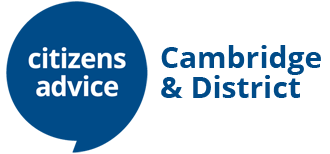Don’t act in haste and hang up if unsure!
Scammers often pretend to be contacting you on behalf of a real organisation. They might use a real name, like an internet provider or energy supplier, and tell you that you will be in trouble unless you act immediately. Scammers use technology to change the phone number that appears on your caller ID. So the name and number you see might not be real. Scammers want you to act quickly before you have time to think. In some scams, they act friendly and helpful. In others, they might threaten or try to scare you.
We have been informed that scammers have been calling people claiming that they work for Citizens Advice. They claim that they have been given information from the government and need further details about you. The information they ask for is most likely to be sensitive information like bank details or national insurance numbers.
If you get a call that you were not expecting claiming to be from Citizens Advice resist the pressure to act immediately. We would never cold call you and would only phone you if you had already been in contact with us or had left a message asking us to do so.
We won’t call you outside office hours, and we will never ask you to set up any payments over the phone.
Anyone who becomes aggressive over the phone and puts pressure on you to give them personal information is a scammer. Advisers from Citizen Advice would never call you on behalf of the government and would never pressurize you for sensitive information.
The charity Age UK has published the following information to help you deal with a cold call that you were not expecting:
- Don’t reveal personal details. Never give out personal or financial information (such as your bank account details or your PIN) over the phone, even if the caller claims to be from your bank.
- Hang up. If you feel harassed or intimidated, or if the caller talks over you without giving you a chance to speak, end the call. It may feel rude to hang up on someone, but you have the right not to be pressurised into anything.
- Ring the organisation. If you’re unsure whether the caller is genuine, you can always ring the company or bank they claim to be from. Make sure you find the number yourself and don’t use the one provided by the caller.*
- Don’t be rushed. Scammers will try to rush you into providing your personal details. They may say they have time-limited offer or claim your bank account is at risk if you don’t give them the information they need right away.
*The correct phone number and email address for Cambridge & District Citizens Advice can be found on our Get Advice page.
If you get an unexpected phone call from someone claiming to be from Cambridge Citizens Advice and offering you help with debt problems, it is very likely to be a scam. Please make sure you:
- don’t give or confirm any personal information;
- end the phone call as soon as possible;
- you can report a scam to Citizens Advice through our Scams Action Service or
- report the phone call to Action Fraud on 0300 123 2040 or online at www.actionfraud.police.uk/report-a-fraud-including-online-crime.
If you have debt or money worries, we can help – please visit the Get Advice page to see our advice options including opening times and contact details.
